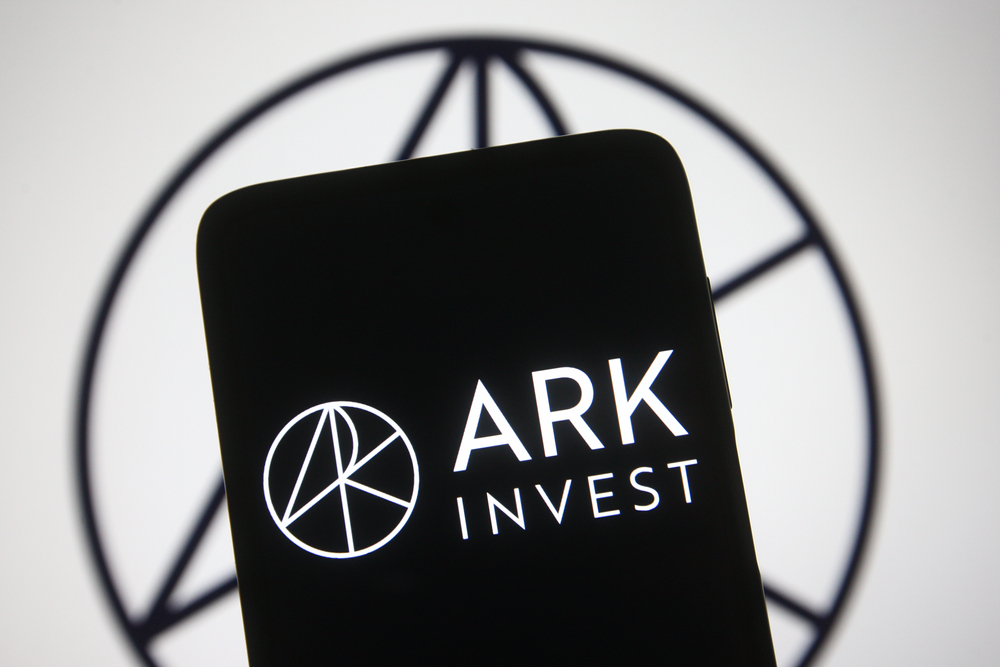The mutual fund world has had its share of rock stars.
The 1980s had Fidelity’s Peter Lynch.
The 1990s had Legg Mason’s Bill Miller.
And the 2000s had Capital Growth Management’s Ken Heebner.
But over the past decade, few, if any, active managers have beaten the market with any consistency.
The rise of index funds and exchange-traded funds (ETFs) sounded the death knell for the rock star fund manager… At least, it did until the emergence of a family of “actively managed” ETFs from upstart asset manager Ark Investment Management.
For a time, the ETFs of Ark Investment Management – or Ark Invest, as it’s commonly known – had a run that rivaled those of Lynch, Miller and Heebner.
The Ark Innovation ETF (NYSE: ARKK) was up 153% in 2020.
The Ark Genomic Revolution ETF (CBOE: ARKG) soared an even more impressive 180%.
All of Ark’s ETFs closed 2020 with triple-digit gains.
So it’s no wonder every mom-and-pop investor wanted to get in on the Ark party.
That run, however, is coming to an end in 2021.
Ark Invest’s flagship ETF – the Ark Innovation ETF – is down 25% this year and is 40% off its February peak.
And according to Bloomberg, assets managed by Ark Invest have tumbled from a high of $61 billion to $34 billion.
Ark Invest CEO Cathie Wood is about to join the ranks of bull market fund managers who, much like Icarus, flew too close to the sun and plummeted back to earth.
Cathie Wood’s Divine Mission
A year ago, investors hailed Wood as “a goddess of wealth.”
Wood herself has said that she founded Ark Invest in response to a calling from God. She described the company’s business as being “about allocating capital to God’s creation in the most innovative and creative way possible.”
Wood launched Ark Invest in January 2014 after her employer rejected her idea of setting up an actively managed ETF.
From day one, Ark Invest focused on “disruptive innovations” centered on everything from DNA sequencing, robotics and artificial intelligence to energy storage and blockchain technology.
Put another way, Ark Invest focused on making concentrated bets on today’s “story stocks.”
Strategies like this are always risky. Experienced investors know that they contain in them the seeds of their own destruction.
Hot hands inevitably end. And it’s always the small investor – the latecomer to the party – who suffers the most from the sharp declines.
Inspired by a divine calling or not, Ark Invest’s ETFs are no exception.
Lessons From the Career of Peter Lynch
To students of financial history, the looming unraveling of Ark Invest will come as no surprise.
Lynch – the manager of Fidelity’s Magellan Fund between 1977 and 1990 – understood the dynamics of managing a retail fund better than almost anyone.
That’s why he was one of the few investors in history smart enough to leave the game while still on top.
Over the 13 years of Lynch’s tenure at the helm of the Magellan Fund, it generated a remarkable 29.2% annual return.
But Lynch’s outstanding track record masks two crucial facts…
First, when Lynch took over Magellan, it was a tiny $18 million fund. By the time he retired in 1990, it had ballooned to $14 billion.
That means the Magellan Fund generated the bulk of its returns when it was small and nimble. After all, it’s a lot easier to pilot a speedboat than a supertanker.
Second, Fidelity’s studies show that the average investor lost money in the Magellan Fund during Lynch’s tenure.
The reason was simple.
Investors were chasing the fund’s most recent performance. They bought high and sold low.
The parallels between Magellan and Ark Invest are clear as day.
Ark Invest’s assets under management exploded after 2020’s remarkable performance. And that has been to the detriment of its returns.
And much like in the case of Fidelity’s Magellan Fund, the average investor in Ark Invest’s flagship Ark Innovation ETF is now underwater.
The Unraveling of Ark Invest
Down 40% from its peak, the Ark Innovation ETF has endured a tough 2020.
Its biggest holdings have been hammered, including Zillow, Teladoc, Zoom and Roku.
By December 7, all 44 of the ETF’s holdings were off their peak. According to data from PensionCraft, just six had escaped sliding into a bear market – a 20% decline from recent highs.
About half of its holdings had fallen at least 50% from their 2021 peaks. Five positions were down by 70% or more.
Don’t “Buy the Dip”
Wood’s supporters will point out that the Ark Innovation ETF has generated average annual gains of around 40% over the past five years, even after the recent pullback.
That’s an impressive number, for sure.
But much like Lynch’s Magellan Fund, its record of average annual gains is based on a much smaller asset base.
Very few real-world investors experience these kinds of returns.
Meanwhile, Wood is in complete denial.
On a recent appearance on CNBC, Wood talked up the potential of Tesla and Bitcoin, declaring, “We are nowhere near a bubble.”
That’s a pill fewer and fewer investors are willing to swallow.
Here’s the reality…
With their big positions in illiquid stocks, Ark Invest’s ETFs are in risky territory.
The moment someone shouts fire in this crowded theater of Ark Invest ETFs, the stampede of investors heading for the exits will unravel them – and more quickly than most investors realize.
So if you are an early investor in an Ark Invest ETF, congratulations. But I recommend you take your money and run.
I’ve seen this movie before.
And it does not have a happy ending.
Good investing,
Nicholas
Click here to watch Nicholas’ latest video update.
For the latest news from Nicholas, connect on Facebook and Twitter.

